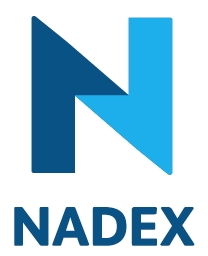Related Research Articles

A financial market is a market in which people trade financial securities and derivatives at low transaction costs. Some of the securities include stocks and bonds, raw materials and precious metals, which are known in the financial markets as commodities.

A stock market, equity market, or share market is the aggregation of buyers and sellers of stocks, which represent ownership claims on businesses; these may include securities listed on a public stock exchange, as well as stock that is only traded privately, such as shares of private companies which are sold to investors through equity crowdfunding platforms. Investment in the stock market is most often done via stockbrokerages and electronic trading platforms. Investment is usually made with an investment strategy in mind.

In finance, a futures contract is a standardized legal agreement to buy or sell something at a predetermined price at a specified time in the future, between parties not known to each other. The asset transacted is usually a commodity or financial instrument. The predetermined price the parties agree to buy and sell the asset for is known as the forward price. The specified time in the future—which is when delivery and payment occur—is known as the delivery date. Because it is a function of an underlying asset, a futures contract is a derivative product.
An investor is a person that allocates capital with the expectation of a future financial return (profit) or to gain an advantage (interest). Through this allocated capital most of the time the investor purchases some species of property. Types of investments include equity, debt, securities, real estate, infrastructure, currency, commodity, token, derivatives such as put and call options, futures, forwards, etc. This definition makes no distinction between the investors in the primary and secondary markets. That is, someone who provides a business with capital and someone who buys a stock are both investors. An investor who owns a stock is a shareholder.

The Chicago Mercantile Exchange (CME) is a global derivatives marketplace based in Chicago and located at 20 S. Wacker Drive. The CME was founded in 1898 as the Chicago Butter and Egg Board, an agricultural commodities exchange. Originally, the exchange was a non-profit organization. The Merc demutualized in November 2000, went public in December 2002, and merged with the Chicago Board of Trade in July 2007 to become a designated contract market of the CME Group Inc., which operates both markets. The chairman and chief executive officer of CME Group is Terrence A. Duffy, Bryan Durkin is president. On August 18, 2008, shareholders approved a merger with the New York Mercantile Exchange (NYMEX) and COMEX. CME, CBOT, NYMEX, and COMEX are now markets owned by CME Group. After the merger, the value of the CME quadrupled in a two-year span, with a market cap of over $25 billion.

National Stock Exchange of India Limited (NSE) is the leading stock exchange of India, located in Mumbai, Maharashtra. It is under the ownership of some leading financial institutions, banks, and insurance companies. NSE was established in 1992 as the first dematerialized electronic exchange in the country. NSE was the first exchange in the country to provide a modern, fully automated screen-based electronic trading system that offered easy trading facilities to investors spread across the length and breadth of the country. Vikram Limaye is the Managing Director and Chief Executive Officer of NSE.
An exchange-traded fund (ETF) is a type of investment fund and exchange-traded product, i.e. they are traded on stock exchanges. ETFs are similar in many ways to mutual funds, except that ETFs are bought and sold from other owners throughout the day on stock exchanges while mutual funds are bought and sold from the issuer based on their price at day's end. An ETF holds assets such as stocks, bonds, currencies, futures contracts, and/or commodities such as gold bars, and generally operates with an arbitrage mechanism designed to keep it trading close to its net asset value, although deviations can occasionally occur. Most ETFs are index funds: that is, they hold the same securities in the same proportions as a certain stock market index or bond market index. The most popular ETFs in the U.S. replicate the S&P 500 Index, the total market index, the NASDAQ-100 index, the price of gold, the "growth" stocks in the Russell 1000 Index, or the index of the largest technology companies. With the exception of non-transparent actively managed ETFs, in most cases, the list of stocks that each ETF owns, as well as their weightings, is posted daily on the website of the issuer. The largest ETFs have annual fees of 0.03% of the amount invested, or even lower, although specialty ETFs can have annual fees well in excess of 1% of the amount invested. These fees are paid to the ETF issuer out of dividends received from the underlying holdings or from selling assets.

The secondary market, also called the aftermarket and follow on public offering, is the financial market in which previously issued financial instruments such as stock, bonds, options, and futures are bought and sold. Another frequent usage of "secondary market" is to refer to loans which are sold by a mortgage bank to investors such as Fannie Mae and Freddie Mac.
Crédit Agricole Corporate and Investment Bank is Crédit Agricole's corporate and investment banking entity. With a staff of 7,395 employees in 32 countries, Crédit Agricole CIB is active in a broad range of capital markets, investment banking and financing activities. Clients are primarily corporates, governments, and banks, with a small footprint in the investor segment.
In finance, a single-stock future (SSF) is a type of futures contract between two parties to exchange a specified number of stocks in a company for a price agreed today with delivery occurring at a specified future date, the delivery date. The contracts are traded on a futures exchange. The party agreeing to take delivery of the underlying stock in the future, the "buyer" of the contract, is said to be "long", and the party agreeing to deliver the stock in the future, the "seller" of the contract, is said to be "short". The terminology reflects the expectations of the parties - the buyer hopes or expects that the stock price is going to increase, while the seller hopes or expects that it will decrease. Because entering the contract itself costs nothing, the buy/sell terminology is a linguistic convenience reflecting the position each party is taking - long or short.
A structured product, also known as a market-linked investment, is a pre-packaged structured finance investment strategy based on a single security, a basket of securities, options, indices, commodities, debt issuance or foreign currencies, and to a lesser extent, derivatives. Structured products are not homogeneous — there are numerous varieties of derivatives and underlying assets — but they can be classified under the aside categories. Typically, a desk will employ a specialized "structurer" to design and manage its structured-product offering.

A stock trader or equity trader or share trader is a person or company involved in trading equity securities and attempting to profit from the purchase and sale of those securities. Stock traders may be an investor, agent, hedger, arbitrageur, speculator, or stockbroker. Such equity trading in large publicly traded companies may be through a stock exchange. Stock shares in smaller public companies may be bought and sold in over-the-counter (OTC) markets or in some instances in equity crowdfunding platforms.

Nadex, formerly known as HedgeStreet, is a US-based retail-focused online binary options exchange. It offers retail trading of binary options and spreads on the most heavily traded forex, commodities and stock indices markets.

The Intercontinental Exchange (ICE) is an American Fortune 500 company formed in 2000 that operates global exchanges, clearing houses and provides mortgage technology, data and listing services. The company owns exchanges for financial and commodity markets, and operates 12 regulated exchanges and marketplaces. This includes ICE futures exchanges in the United States, Canada and Europe, the Liffe futures exchanges in Europe, the New York Stock Exchange, equity options exchanges and OTC energy, credit and equity markets.
Financial Technologies (India) Limited (FTIL) provides technology ventures, financial platforms and solutions for creating digital markets and marketplaces. It is headquartered in Mumbai, Maharashtra, and has its registered office in Chennai, Tamil Nadu, India. It is formed in 1988. It was funded by Jignesh Shah. The company offers technology intellectual property to create and trade on financial markets. The company commenced operations in 1988 starting off with the development of technology products for connecting financial markets. It had its first IPO in 1995. The company introduced its first commodity derivatives trading platform, the Multi Commodity Exchange (MCX) in 2003. It established similar exchanges in India and elsewhere. FTIL has divested of its domestic and international ventures.
NASDAQ futures are financial futures which launched on June 21, 1999. It is the financial contract futures that allow an investor to hedge with or speculate on the future value of various components of the NASDAQ market index.
LCH is a British clearing house group that serves major international exchanges, as well as a range of OTC markets. The LCH Group consists of two subsidiaries: LCH Ltd and LCH SA. Based on 2012 figures, LCH cleared approximately 50% of the global interest rate swap market, and was the second largest clearer of bonds and repos in the world, providing services across 13 government debt markets. In addition, LCH clears a broad range of asset classes including: commodities, securities, exchange traded derivatives, credit default swaps, energy contracts, freight derivatives, interest rate swaps, foreign exchange and Euro and Sterling denominated bonds and repos.

Richard L. Sandor is an American businessman, economist, and entrepreneur. He is chairman and CEO of the American Financial Exchange (AFX) established in 2015, which is an electronic exchange for direct interbank/financial institution lending and borrowing. The AFX flagship product, the AMERIBOR benchmark index, reflects the actual borrowing costs of thousands of regional and community banks across the U.S. and is one of the short-term borrowing rates, along with the Secured Overnight Financing Rate, vying to replace U.S. dollar Libor as a benchmark in the U.S.
Securities Transaction Tax (STT) is a tax payable in India on the value of securities transacted through a recognized stock exchange. As of 2016, it is 0.1% for delivery based equity trading.
Dow Futures are financial futures which allow an investor to hedge with or speculate on the future value of various components of the Dow Jones Industrial Average market index. The futures instruments are derived from the Dow Jones Industrial Average as E-mini Dow Futures.
References
- ↑ "Handbook Articles".
- ↑ "The Promiscuous Investor" by Patrick L Young erivatives.com 2001
- ↑ New Capital Market Revolution by Patrick L Young, Texere Publishing 2002.
- ↑ Essential Oils Exchange Homepage www.EOEX.com
- ↑ Appliederivatives.com Editorial March 2004, "Perfect Competition" http://www.appliederivatives.com/content/content.cfm?ID=72FEECF2-A969-44E9-9E732A00C3168263&SectionID=A350F060-F99C-4982-AAEF7E6EFDCC0F16&IssueID=93558EDA-825B-4F60-8525AA04BE1D55AD%5B%5D
- ↑ Aruba Exchange Home Page http://www.arubax.com
- ↑ Home Page http://www.pacificotc.com/